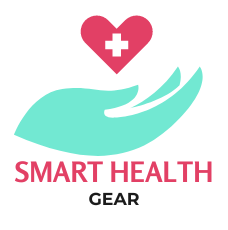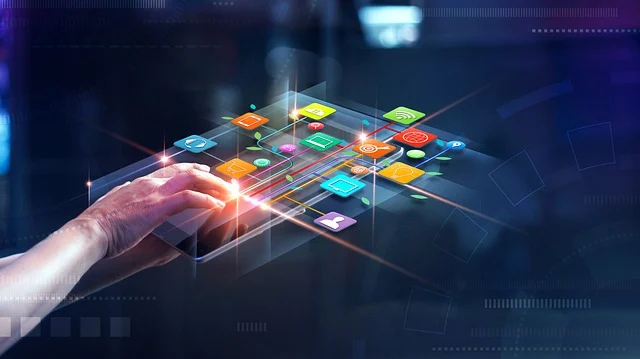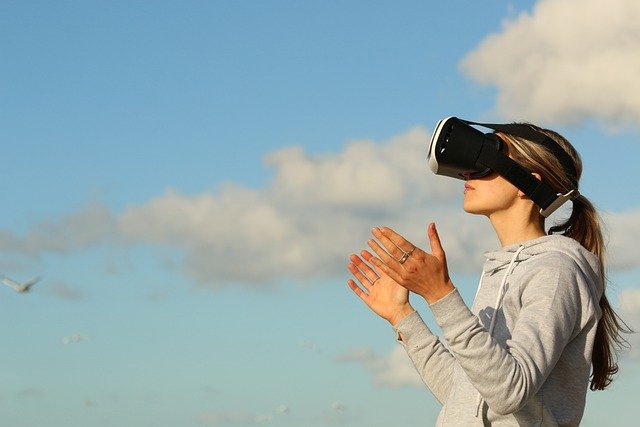Unveiling the Science of Sleep: The Rise of Sleep Analysis Apps
Introduction
Sleep is a fundamental pillar of health, as vital as nutrition and exercise. Despite its importance, sleep often remains misunderstood and undervalued. In recent years, sleep analysis apps have emerged as powerful tools to help individuals understand and improve their sleep patterns. These apps, equipped with advanced technology, provide detailed insights into sleep quality, duration, and patterns. This article delves into the world of sleep analysis apps, exploring their features, benefits, technological underpinnings, and their impact on personal health and well-being.
The Importance of Sleep
Before diving into sleep analysis apps, it is essential to understand the significance of sleep. Quality sleep is crucial for various bodily functions, including:
- Cognitive Functioning: Sleep enhances memory, learning, problem-solving skills, and creativity.
- Emotional Well-being: Adequate sleep helps regulate mood, reduce stress, and prevent mental health disorders like depression and anxiety.
- Physical Health: Sleep supports immune function, muscle recovery, and overall physical health. It is linked to a lower risk of chronic conditions like heart disease, diabetes, and obesity.
- Performance and Productivity: Good sleep improves concentration, productivity, and performance in daily tasks and physical activities.
The Evolution of Sleep Analysis Apps
The journey of sleep analysis apps began with simple sleep diaries and alarm clocks. Today, they have transformed into sophisticated tools that use advanced sensors and algorithms to analyze sleep. These apps are typically integrated with wearable devices, such as smartwatches and fitness bands, which track various physiological signals.
The rise of sleep analysis apps is driven by growing awareness of the importance of sleep and advancements in technology. Wearable devices equipped with accelerometers, heart rate monitors, and other sensors provide accurate data on sleep patterns. Moreover, the integration of artificial intelligence (AI) and machine learning allows for more precise analysis and personalized recommendations.
Key Features of Sleep Analysis Apps
- Sleep Tracking: Sleep analysis apps monitor sleep duration, stages (light, deep, REM), and interruptions. This data helps users understand their sleep patterns and identify issues.
- Heart Rate Monitoring: By tracking heart rate variability (HRV), these apps provide insights into sleep quality and overall cardiovascular health.
- Sleep Score: Many apps offer a sleep score based on various parameters, such as sleep duration, quality, and consistency. This score helps users gauge their sleep health at a glance.
- Sleep Environment Monitoring: Some apps monitor the sleep environment, including factors like room temperature, noise levels, and light exposure, which can affect sleep quality.
- Smart Alarms: Smart alarms wake users during the lightest sleep phase within a specified time window, making waking up easier and less jarring.
- Personalized Recommendations: Based on sleep data, these apps provide tailored tips and recommendations to improve sleep hygiene and quality.
- Sleep Reports and Trends: Detailed reports and trend analysis help users track their progress over time and make informed decisions about their sleep habits.
Benefits of Sleep Analysis Apps
- Improved Sleep Quality: By providing insights into sleep patterns and factors affecting sleep, these apps help users make adjustments to improve sleep quality.
- Increased Awareness: Sleep analysis apps raise awareness about the importance of sleep and its impact on overall health. Users become more mindful of their sleep habits and make healthier choices.
- Personalized Insights: The personalized nature of these apps ensures that recommendations are tailored to individual needs, leading to more effective improvements in sleep.
- Better Daytime Performance: Improved sleep quality translates to better cognitive functioning, mood, and productivity during the day.
- Health Monitoring: Regular monitoring of sleep and related health metrics can help in early detection of sleep disorders and other health issues, enabling timely intervention.
- Convenience: Sleep analysis apps provide a convenient and accessible way to monitor and improve sleep without the need for expensive sleep studies or professional consultations.
Technology Behind Sleep Analysis Apps
The effectiveness of sleep analysis apps lies in the advanced technology that powers them. Key technological components include:
- Wearable Devices and Sensors: Wearables equipped with accelerometers, gyroscopes, and biometric sensors track movements, heart rate, and other physiological signals. This data is used to infer sleep stages and quality.
- Artificial Intelligence and Machine Learning: AI algorithms analyze vast amounts of sleep data to identify patterns, detect anomalies, and provide personalized recommendations. Machine learning enables the app to learn from user behavior and improve its accuracy over time.
- Data Analytics: Sophisticated data analytics tools process the collected data, providing detailed insights and visualizations that help users understand their sleep patterns and trends.
- Cloud Computing: Cloud infrastructure allows for the storage and processing of large datasets, ensuring that users have access to their sleep data across multiple devices.
- Integration with Health Ecosystems: Many sleep analysis apps integrate with other health apps and devices, providing a comprehensive view of the user’s health. This integration can include fitness tracking, diet monitoring, and medical records.

Impact on Personal Health
Sleep analysis apps have a profound impact on personal health and well-being. Some of the notable impacts include:
- Identification of Sleep Disorders: Sleep analysis apps can help identify potential sleep disorders such as insomnia, sleep apnea, and restless leg syndrome. Early detection enables timely medical intervention and treatment.
- Behavioral Changes: By raising awareness and providing actionable insights, these apps encourage users to adopt healthier sleep habits. This can include maintaining a regular sleep schedule, creating a conducive sleep environment, and avoiding stimulants before bedtime.
- Mental Health Benefits: Improved sleep quality is closely linked to better mental health. Users often report reduced stress, anxiety, and depressive symptoms after using sleep analysis apps.
- Enhanced Physical Health: Quality sleep supports physical health, including immune function, muscle recovery, and overall energy levels. Regular monitoring and improvements in sleep can lead to better physical health outcomes.
- Informed Decision Making: Access to detailed sleep data empowers users to make informed decisions about their lifestyle and health. This can lead to more proactive health management and prevention of chronic conditions.
Challenges and Considerations
Despite their numerous benefits, sleep analysis apps also present certain challenges and considerations:
- Data Privacy and Security: The collection and storage of sensitive health data raise concerns about privacy and security. It is crucial for app developers to implement robust security measures to protect user data and ensure compliance with privacy regulations.
- Accuracy of Data: The accuracy of data collected by sleep analysis apps can vary depending on the quality of sensors and algorithms used. Inaccurate data can lead to misleading conclusions and ineffective sleep improvement strategies.
- User Engagement and Retention: Maintaining user engagement and retention is a challenge for sleep analysis apps. Users may lose interest over time or find the app difficult to use. Continuous updates, new features, and personalized content can help in retaining users.
- Health Literacy: Not all users may have the necessary health literacy to interpret and act on the data provided by sleep analysis apps. Providing educational resources and user-friendly explanations can help in bridging this gap.
- Dependency on Technology: Over-reliance on sleep analysis apps can lead to a dependency on technology for sleep management. It is important for users to balance the use of technology with traditional methods of sleep hygiene and self-awareness.
The Future of Sleep Analysis Apps
The future of sleep analysis apps looks promising, with continuous advancements in technology and increasing awareness of the importance of sleep. Some trends that are likely to shape the future include:
- Integration with Healthcare Systems: Sleep analysis apps may become an integral part of healthcare systems, enabling seamless sharing of sleep data between users and healthcare providers. This can lead to more personalized and effective medical care.
- Advanced Biometrics and Sensors: The development of more advanced biometric sensors will enable the tracking of a wider range of physiological signals, providing deeper insights into sleep quality and overall health.
- AI and Predictive Analytics: AI and predictive analytics will play a larger role in sleep analysis apps, offering more accurate and personalized recommendations. These technologies can also help in identifying potential sleep disorders and health issues before they become serious.
- Holistic Health Management: Future sleep analysis apps may offer a more holistic approach to health management, integrating physical, mental, and emotional well-being. Features like stress management techniques, mindfulness exercises, and mental health tracking can provide a comprehensive health management solution.
- Virtual Reality (VR) and Augmented Reality (AR): VR and AR technologies can enhance the sleep experience by providing immersive and interactive relaxation techniques. These technologies have the potential to make sleep more engaging and enjoyable.
Conclusion
Sleep analysis apps have revolutionized the way we approach sleep and overall health. By leveraging advanced technology, these apps provide users with the tools and insights needed to understand and improve their sleep patterns. While challenges remain, the potential benefits far outweigh the drawbacks, making sleep analysis apps an invaluable asset in the pursuit of better sleep and overall well-being. As technology continues to evolve, these apps will become even more sophisticated, offering new possibilities for improving sleep and health.




